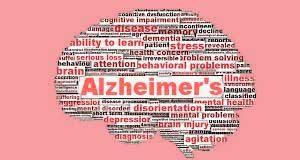What causes Alzheimer’s Disease (AD)? I recently read an article written by Stephanie Seneff, a Senior Research Scientist at the Massachusetts Institute of Technology (MIT) Computer Science and Artificial Intelligence Laboratory. I know from my years at Harvard that MIT does not employ dummies. So it’s worthwhile reading her “Recipe for Developing AD.”
The Doctor Game
# Danger One
Be skeptical about current drug therapy. Seneff says the general belief is that amyloid plaques in the brain are associated with AD. But although drugs can decrease the size of plaques, they also accelerate the rate of mental decline! So prevention is currently the only way to treat this dreaded disease.
# Danger Two.
Seneff reports “Together with colleagues I published a paper this year on a theory for the cause of AD, which was based on the idea that a key contributor is insufficient cholesterol in the brain. And that two of the CLDs (cholesterol lowering drugs) do interfere with the production of cholesterol in the brain.”
Seneff adds that studies show that those who took CLDs had over two and a half times greater risk of developing AD when compared to non-users. She also believes that doctors do take their patients off CLDs when they start to develop memory problems. But at this point it may be too late for patients to recover.
This danger has always worried me as the brain contains 25% of the cholesterol in the body and every cell needs it. We also know that some patients on CLDs develop emotional problems. In fact, in severe cases it results in total amnesia and the only cure is to discontinue this medication.
# Danger Three
Seneff claims the consumption of sugar, particularly fructose, has steadily increased over the last few decades, and is a hazard for AD. In this case proteins in the cell get “gummed up with sugar” and can no longer function.
# Danger Four
It’s been suspected for years that aluminum may be related to AD. Seneff shares this concern and believes that aluminum, present in sunscreen, antiperspirants and many antacids, may be a factor in this disease. She makes another interesting point that it’s been demonstrated without a doubt that aluminum in water, used in renal dialysis, leads to dementia in patients unless all but trace amounts of this mineral are removed.
# Danger Five
Today there is much debate about vaccines. Seneff is concerned about the myriad dangers of aluminum in vaccines and their penetration into brain has been demonstrated in animal studies. She also believes the Hepatitis B vaccine may be associated with autism.
What about annual flu shots? The elderly are encouraged to renew their flu shot every single year, but Seneff believes, contrary to other experts, that this is another major factor in the risk of Alzheimer’s disease as about half of flu vaccines contain mercury, a preservative, which is probably the most toxic heavy metal known. Moreover, she claims, the flu virus is grown on gelatin which contains substantial amounts of glutamate, a known neurotoxin.
I do not get flu shots because for 20 years I’ve been taking large doses of vitamin C and lysine (up to 10,000 milligrams in three divided doses) which increase immunity against viral diseases. Medi-C Plus and other brands are available in Health Food Stores. But readers must consult their own doctor on this matter. Influenza kills people every year.
I believe that high doses of C and Lysine have also helped to protect me from AD. Why? Because Dr. Sydney Bush, an English researcher proved that a lack of vitamin C results in hardening of arteries. This means less oxygenated blood to the brain causes tiny areas of brain death. Dr. Alvaro Alonso, at the University of Minnesota showed that post-mortem studies of the brains of dementia patients often show damage of small blood vessels that lead to brain death.
Moreover, none of my colleagues nor readers have been able to report a single patient on high doses of vitamin C and lysine who developed Alzheimer’s disease. I find this indicative that C, a wonder drug, might also possess preventive powers for AD.
—W. Gifford-Jones MD
Online: http://www.docgiff.com For comment: mailto:info@docgiff.com
 TheBulletin.ca Journal of Downtown Toronto
TheBulletin.ca Journal of Downtown Toronto

